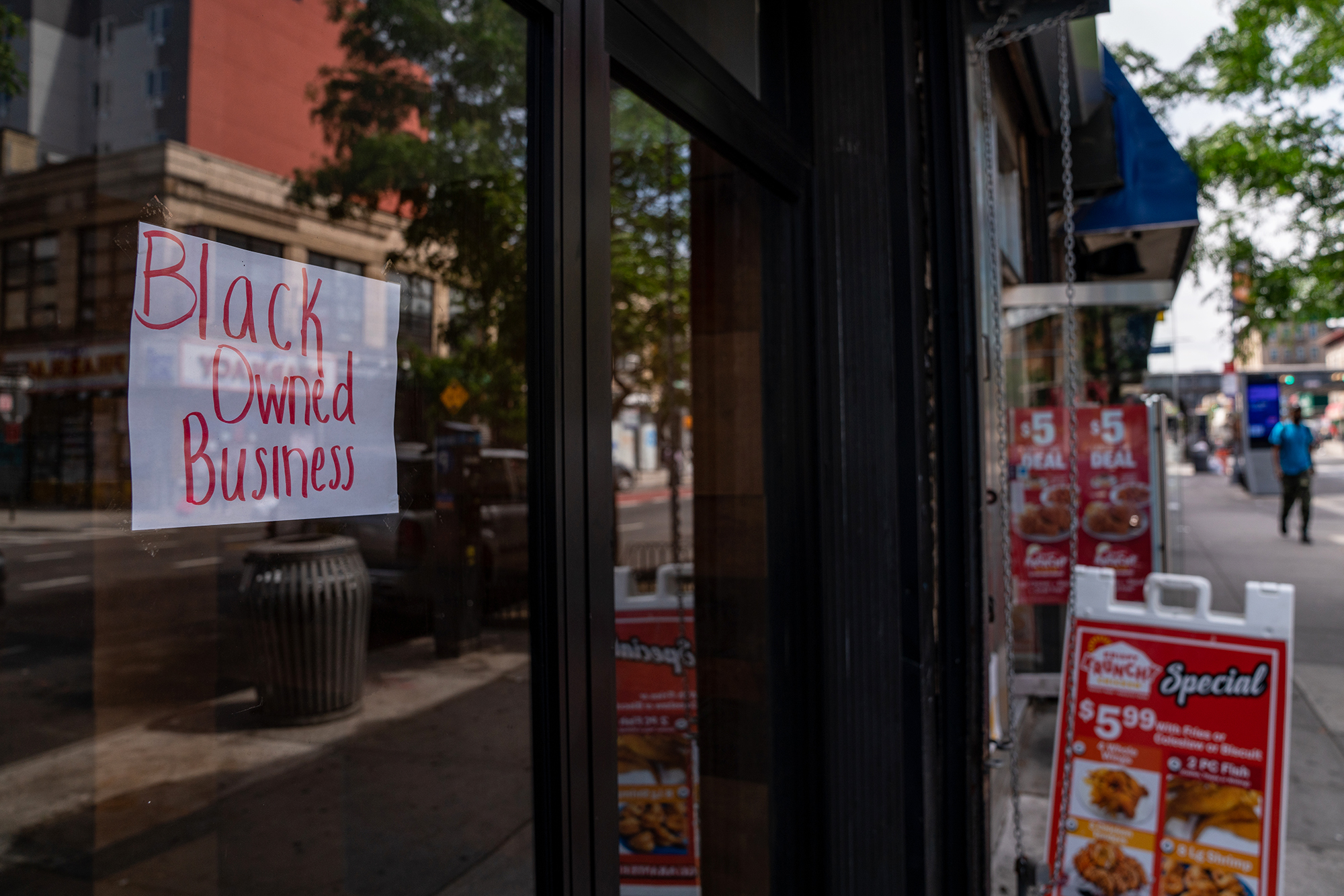In his recent executive order on advancing racial equity, President Joe Biden reminded us that the American Dream is built on the promise of equal opportunity. Yet, our nation has consistently failed to live up to this ideal. As the order states, “Entrenched disparities in our laws and public policies, and in our public and private institutions, have often denied that equal opportunity to individuals and communities.”
That is especially true in the business world. Black entrepreneurs and small business owners have been systemically denied access to capital to start or expand a business. Black people comprise approximately 14% of the US population, but Black entrepreneurs own only 2.2% or 124,000 of the nation’s 5.7 million businesses that have more than one employee, according to Brookings’ analysis of the most recent Census data.
This is costing Black entrepreneurs and Black-majority communities, places where at least 50% of the population is Black, hundreds of billions of dollars, robbing the entire US economy of trillions.
In Brookings’ report “To Expand the Economy, Invest in Black Businesses,” the research showed that if Black businesses accounted for 14.2% of employer firms (a percentage equivalent to the Black population of the United States), there would be 806,218 more Black businesses.
Biden’s order on equity calls for the director of the Office of Management and Budget (OMB) to work with all federal agency heads to identify and report on best approaches for measuring equity and for increasing equality of opportunity. We believe many of these measurements should come in the form of business goals that can lead to greater investments in Black entrepreneurs.
Black businesses are key to fueling our economic engine if our country is to build back better. We need new targets for government agencies to use when purchasing products and services from Black businesses. Corporate and government leaders in metropolitan areas should set goals to increase the number of Black businesses in high-growth industries.
Black business are structurally undercapitalized. The coronavirus pandemic exposed the systemic hurdles and disparities Black business owners face, and the federal response enflamed them. We will show in a forthcoming report that 96% of Black businesses are sole proprietorships compared to 79.9% of non-Black businesses. Many Black-owned sole proprietorships want to take on larger projects that require more employees but are undercapitalized to do so. In addition, sole proprietorships often do not qualify for many benefits offered to employer businesses. For example, a higher percentage of Black business owners was not deemed eligible or simply missed their opportunity to receive Payroll Protection Program relief subsidies when the federal government first released CARES Act subsidies in March last year.
Since that time, an estimated 41% of Black-owned businesses have had to close compared to 17% of White-owned businesses. We saw this play out during the Great Recession when 51% of Black-owned businesses closed their doors compared to 40% of White businesses. In addition, Black entrepreneurs have a history of being denied for loans at 2.5 times the rate of White applicants.
Part of the federal government’s role is to actively create a level playing field. Biden’s executive order calls for agency heads to study barriers that limit minorities and underserved communities from taking advantage of procurement and contracting opportunities.
But let’s be clear, an executive order alone won’t bring about the potential growth in businesses, jobs and revenue. Industry and civic leaders must work across public and private sectors on a shared set of goals and strategies. Efforts like the Path to 1555 and Detroit Means Business, which seek to develop more Black firms, are critical because they focus on both Black job and revenue growth as goals the country should rally behind.
We need public-private partnerships that will set or reestablish goals to increase the number of Black businesses that qualify for government and large corporate contracts. Governments and corporations can encourage growth and activity by adopting new procurement processes that facilitate inclusion. For example, New Orleans’ regional transit authority pledged that a minimum of 31% of its federally provisioned grants would go to contracts with minority-owned businesses in the area.
By establishing clear, measurable goals for strategic investment, the Biden administration can help foster a culture of development. Government agencies, corporations and civic groups must help the current administration do just that. By doing so, we can grow our economy, increase the resiliency of our communities and empower more individuals.
Some may see the executive order on equity as another bureaucratic impediment to markets. But we should all see equity as an opportunity for growth.





